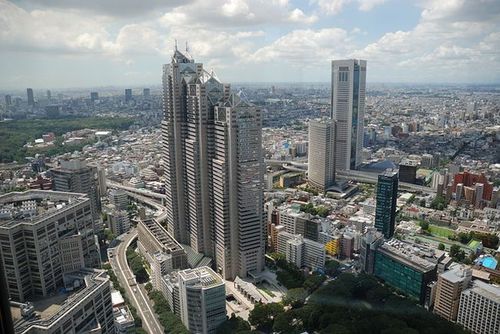December 10, 2017
Kyoto University Utilizes AI to Propose Policies for Japan's Sustainable Future to 2052
Keywords: Policy / Systems Resilience

Image by nguyentuanhung.
Professor Yoshinori Hiroi and colleagues of Kyoto University's Kokoro Research Center proposed on Sept. 5, 2017, the types of policies needed for Japan's sustainable future. Their work was accomplished with the use of artificial intelligence (AI) technology developed by the Hitachi Kyoto University Laboratory, a joint research division for exploring future societal issues. The use of AI technology was part of a joint research initiative for integrating humanities and sciences, identifying societal factors, and the timing for implementing policies.
Kyoto University proposed to utilize AI technology in some parts of the policy recommendation process towards Japan's sustainable future. Japan is experiencing a paradigm shift as a result of the decreasing birthrate and aging population and a change in industry structure, moving from growth and expansion to a post-growth era (non-growth and non-expansion). The significant social challenges Japan faces are sustainability of (1) population and birth rates, (2) public finance and social security, (3) cities and regions, and (4) environment and resources. In addition, there are challenges with (5) stable employment, (6) regional disparities, (7) happiness, and (8) maintaining and promoting the well-being of people who live in Japan. Japan needs to design and implement well-timed strategic policies to tackle these challenges, but human experts are constrained in the number of future scenarios they are able to create and evaluate.
For these proposed policies, the team first built a model of causal relationships involving 149 societal factors based on the eight challenges mentioned above. Then, by conducting an AI simulation, they estimated approximately 20,000 future scenarios over the course of 35 years (2018 to 2052) and grouped them into 23 representative scenarios.
The researchers discovered that the scenarios diverged in two different directions, so they made an effort to determine the timing and sequence of divergence, and identified the factors driving the divergence. Their analysis provided the basis for experts to make the following three observations about attaining a sustainable future.
- Scenarios toward the year 2050 fall in either one of two directions: urban concentration and regional decentralization. In the urban concentration scenario, businesses in urban areas drive technological innovation and further accelerate the concentration of populations into the big cities, while local regions deteriorate. Conversely, the decentralization scenario leads to population dispersal to local areas, a recovery of birth rates, and a shrinking of regional disparities, plus longer, healthier lives and increased happiness for individuals.
- It is important for policymakers to make a choice between the urban concentration and regional decentralization scenarios and to implement the related policies within the next eight to ten years. After that the divergence in scenarios occurs, and thereafter there is no opportunity to revert to the other course. From the perspective of sustainability, policies for social welfare and social wellbeing can be effective in realizing the decentralization path.
- In order to realize a sustainable decentralization scenario, supporting policies need to be implemented during the next 17 to 20 years. The divergence between sustainable and unsustainable scenarios occurs in this time period, so policies to increase economic circulation need to be implemented steadily, such as policies relating to local tax revenues, regional energy self-sufficiency, and local employment.
Kyoto University intends to work with research institutes within and outside of the university and with public institutions to promote these proposals as guidelines leading to healthy and happy lives for the populace, and hopes that these proposals will be utilized in decision making affecting social policies.
Related JFS Articles
Related
"JFS Newsletter"
- 'Yumekaze' Wind Turbine Project Connects Metro Consumers and Regional Producers: Seikatsu Club Consumers' Co-operative
- Healthy Living through Improved Air-Quality and Environmental Protection: Programs to Prevent Health Damage from Pollution
- Well-being and Other Social Indicators: A Study of Five Local Governments Initiatives in Japan
- 1% Support Program in Ichinomiya City: Citizens Decide How to Use Their Tax Money
- Let's Enjoy Walking for the Benefits of Better Health -- Smart Wellness Point Project
Related
"Popular Articles"
- Japan Adopts Work-Life Balance Charter
- Tokyo Gov't Launches 10-Year Project for Green Metropolis
- FutureCity Initiative Holds International Forum Overseas for First Time
- 'Eco Action 21' Certification for Small/Medium Organizations
- OECD Selects Japan's Kitakyushu as First Model City for Green Growth in Asia


